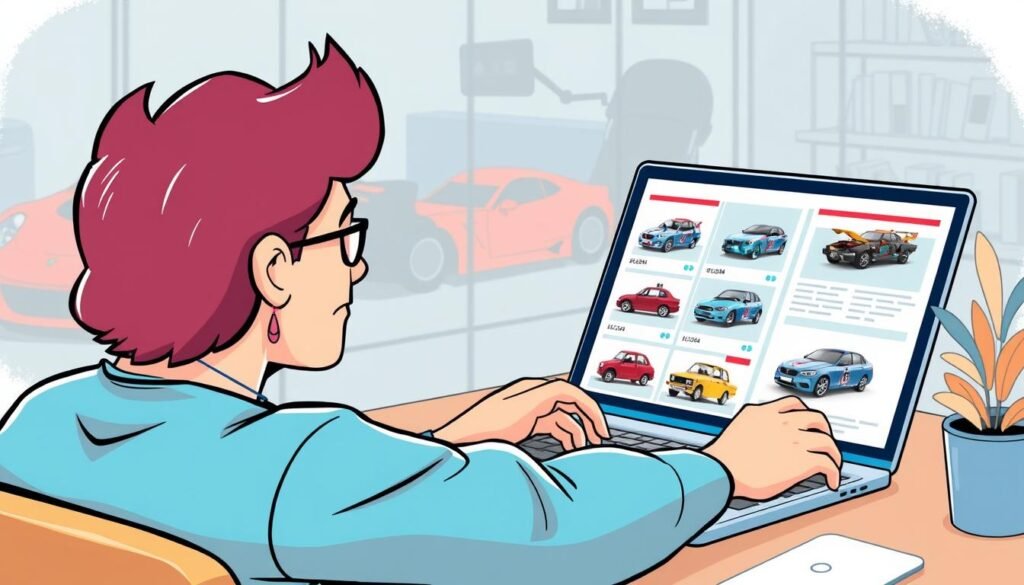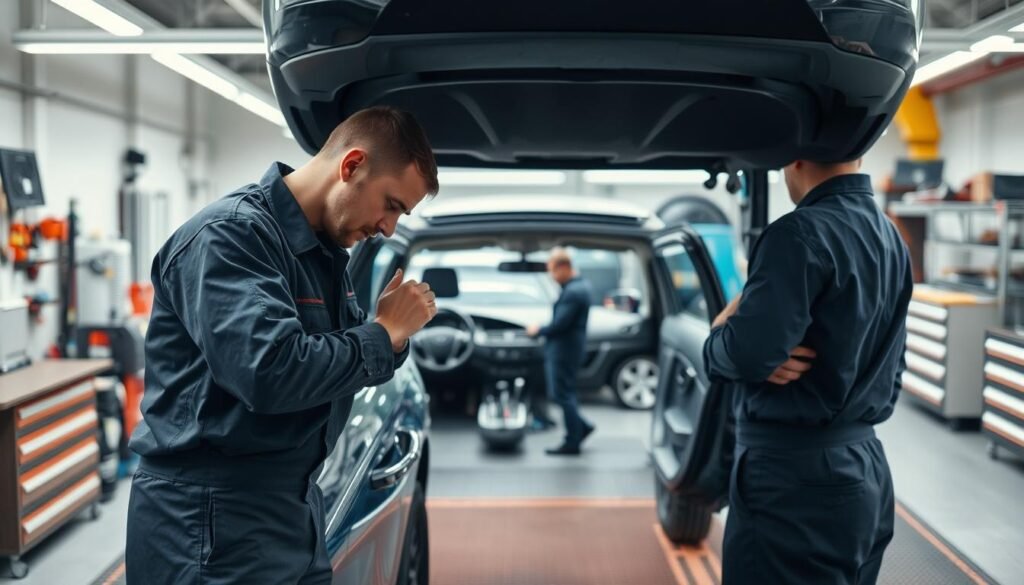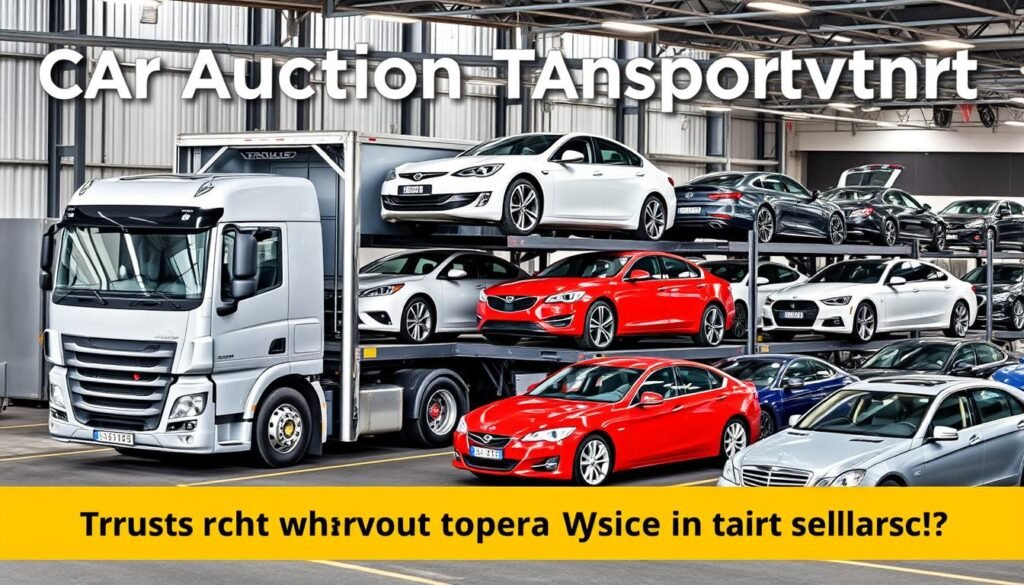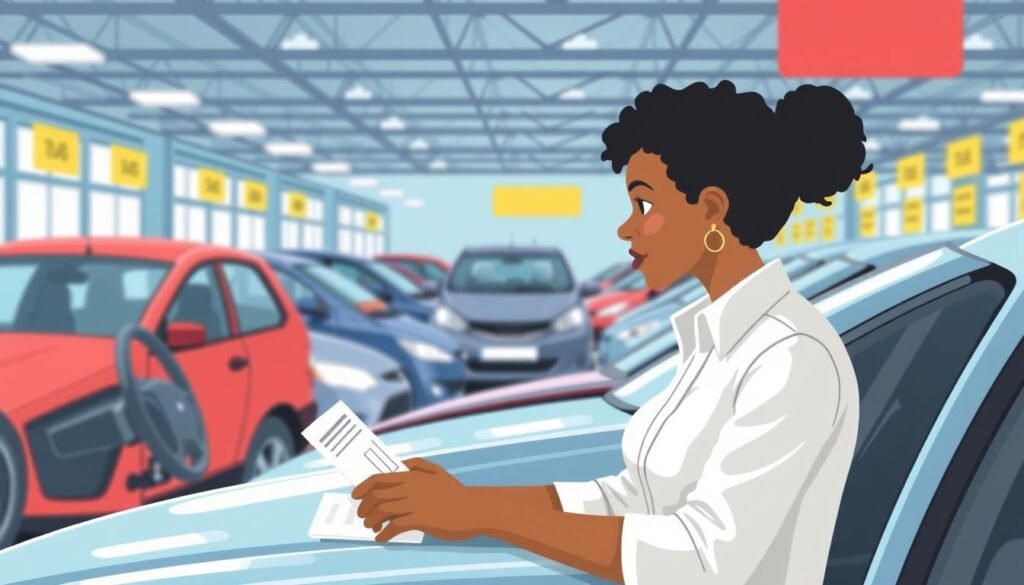Did you know that thousands of vehicles are sold through insured car auctions every day, offering buyers a chance to snag a great deal on a quality vehicle?
Salvage Reseller provides an opportunity to buy any vehicle salvage, clean repairable, repossessed, and anything in between for a fraction of its market cost. By exploring these auctions, you can discover a cost-effective alternative to traditional dealerships.
You’ll be able to browse through various auctions, inspect vehicles, and bid on the ones that meet your needs and budget. With the right guidance, you can navigate the process with confidence and unlock substantial savings.
Key Takeaways
- Discover how insured car auctions can help you save on your next vehicle purchase.
- Explore the growing marketplace of online and in-person auctions that offer significant savings.
- Learn how to navigate the bidding process successfully and bid with confidence.
- Understand the registration requirements and vehicle inspection reports.
- Unlock substantial savings while finding the perfect vehicle that meets your needs and budget.
What Are Insurance Car Auctions and How Do They Work?

With insurance car auctions, you can browse and bid on various vehicles from the comfort of your own home. These auctions have transformed the way people acquire vehicles, offering a unique platform for buyers to access a wide range of cars, trucks, and other automobiles.
The Basics of Insurance Car Auctions
Insurance car auctions involve the sale of vehicles that have been damaged or are no longer needed by insurance companies. These vehicles can range from cars with minor damage to those that are considered total losses. The auctions are typically conducted online, allowing buyers to participate from anywhere.
ACV’s used car auctions are 100% online and run daily, so you can find used car inventory from your phone or desk without having to travel to a physical auto auction. This convenience has opened up new opportunities for buyers who want to purchase vehicles at competitive prices.
How These Auctions Differ from Traditional Dealerships
Insurance car auctions differ significantly from traditional dealerships. The vehicles available are often sold as-is, and the sales process is typically faster. Buyers can also access detailed vehicle histories and condition reports, providing transparency in the buying process.
Key benefits include:
– Online car auctions have revolutionized the industry by removing geographical limitations and allowing you to bid from anywhere at any time.
– The convenience of browsing thousands of vehicles from your computer or smartphone has attracted a growing number of buyers to these platforms.
– Digital auctions provide enhanced transparency through detailed vehicle histories, high-resolution photos, and comprehensive condition reports.
The Growing Popularity of Online Car Auctions
The popularity of online car auctions is on the rise due to their convenience and accessibility. Buyers appreciate the ability to browse and bid on vehicles at any time, making it easier to find the right vehicle at the right price.
The 24/7 access to inventory means you never miss an opportunity to find the perfect vehicle. As a result, online car auctions have become an attractive option for those looking to purchase vehicles.
Benefits of Buying from Insurance Car Auctions
Insurance car auctions have become increasingly popular due to the potential for significant cost savings and transparency in the buying process. These auctions provide a platform where buyers can purchase vehicles at discounted prices, often with detailed information about the vehicle’s condition.
Significant Cost Savings on Vehicle Purchases
One of the primary advantages of buying from insurance car auctions is the potential for significant cost savings. Vehicles are often sold at a fraction of their retail price, making them an attractive option for budget-conscious buyers.
Average Savings Compared to Retail Prices
Buyers can expect to save a considerable amount compared to retail prices. On average, vehicles sold at insurance car auctions are priced lower due to factors such as previous damage or being deemed a total loss by insurance companies. For more information on how online salvage auto auctions work, you can visit this link.
Value Opportunities for Different Budgets
Insurance car auctions cater to a wide range of budgets, offering value opportunities for both individual buyers and businesses. Whether you’re looking for an affordable used car or a salvage vehicle for repair, there’s something for everyone.
Wide Selection of Inventory
Insurance car auctions boast a wide selection of inventory, featuring various makes, models, and years. This extensive range allows buyers to find the perfect vehicle to suit their needs.
Transparency in the Buying Process
Transparency is a key benefit of insurance car auctions. Buyers have access to comprehensive information about each vehicle, including:
- Detailed condition reports that disclose all known damage and mechanical issues
- Comprehensive vehicle history reports, including previous accidents, title status, and odometer readings
- High-resolution photos documenting the vehicle’s current condition from multiple angles
- Videos of running engines and undercarriage inspections to further increase transparency
This level of disclosure helps you bid with confidence, knowing exactly what you’re purchasing and what repairs might be needed. For tips on getting the lowest car insurance rate, you can check out this resource.
Types of Vehicles Available at Insurance Car Auctions
Insurance car auctions provide buyers with access to a broad spectrum of vehicles, including rare and unique models. This diversity is one of the key attractions for buyers looking for specific types of vehicles or seeking to capitalize on potential bargains.
Clean Title Vehicles are among the types of vehicles you’ll find at insurance car auctions. These vehicles have not been in major accidents and have clean titles, making them an attractive option for buyers seeking reliable transportation without the high costs associated with traditional dealerships.
Clean Title Vehicles
Clean title vehicles available through insurance car auctions often include low-mileage cars, well-maintained used vehicles, and sometimes even brand-new models. These vehicles have been previously owned or insured but have not been in significant accidents, making them a great option for buyers looking for reliability.
Salvage and Repairable Vehicles
For those with mechanical skills or a willingness to invest in repairs, salvage and repairable vehicles offer significant savings opportunities. These vehicles may have been damaged in accidents or natural disasters but can be restored to operational condition with the right repairs.
Repossessed Vehicles
Repossessed vehicles are another category available at insurance car auctions. These vehicles have been repossessed by lenders due to non-payment and are sold to recover losses. They can offer buyers a chance to purchase vehicles at lower prices.
Specialty and Luxury Vehicles
Insurance car auctions also feature an impressive selection of specialty and luxury vehicles that would be financially out of reach for many buyers at retail prices. You’ll find high-end European models, performance cars, and limited-production vehicles available at fractions of their original cost. These premium vehicles often represent the largest percentage savings compared to their retail values. Specialty vehicles like classic cars, motorcycles, RVs, and commercial equipment also appear regularly at these auctions. The unique nature of these vehicles sometimes means less competition from other buyers, creating opportunities for exceptional deals.
By exploring insurance car auctions, you can discover a wide range of vehicles at competitive prices. Whether you’re in the market for a daily driver, a project car, or a luxury vehicle, these auctions offer a valuable resource. Visit platforms like Salvage Reseller to explore the available inventory and start bidding on your next vehicle.
Top Insurance Car Auction Platforms in the United States
For those looking to purchase vehicles through insurance car auctions, the U.S. market offers several prominent platforms to consider. These platforms provide a range of benefits, from significant cost savings to extensive vehicle inventories.

ACV Auctions: Online Dealer Auctions
ACV Auctions is a notable platform that specializes in online dealer auctions. It offers a user-friendly interface and a wide selection of vehicles.
Features and Benefits
The platform provides detailed vehicle information and high-definition images, making it easier for buyers to make informed decisions. ACV Auctions also offers a streamlined bidding process.
Dealer Requirements
To participate in ACV Auctions, buyers typically need to meet specific dealer requirements, which may include obtaining a dealer license. The platform’s focus on dealer-to-dealer transactions ensures a professional and efficient experience.
Salvage Reseller: Affordable Vehicle Options
Salvage Reseller is another platform that stands out for its affordable vehicle options. It caters to buyers looking for salvage or repairable vehicles at competitive prices.
Copart and AutoBidMaster: Extensive Vehicle Inventory
Copart, in partnership with AutoBidMaster, offers an extensive inventory of vehicles, including used, wholesale, and repairable cars, trucks, and SUVs. With over 300,000+ vehicles available and 48 live auctions, it’s a significant player in the insurance car auction market.
Comparing Platform Features and Requirements
When choosing an insurance car auction platform, it’s essential to compare their features and requirements. Key factors to consider include access requirements, license requirements, and fee structures. Each platform has its unique offerings, ranging from dealer-only access to open registration for individual buyers.
- Each platform has unique requirements ranging from dealer-only access to open registration for individual buyers.
- You’ll find varying fee structures across platforms, with some charging membership fees while others add buyer premiums to final bids.
- Some platforms specialize in specific vehicle types or conditions, while others offer comprehensive inventories.
- License requirements vary significantly, with some platforms requiring dealer credentials and others welcoming individual buyers.
- Consider each platform’s geographic coverage when choosing where to register, as transportation costs can impact your overall savings.
By understanding these differences, you can select the platform that best suits your needs and preferences, ensuring a successful and satisfying insurance car auction experience.
The Registration Process: Getting Started with Insurance Car Auctions

Registering for insurance car auctions is the initial step towards unlocking savings on your next vehicle purchase. The process is designed to be straightforward, allowing you to quickly start bidding on a wide range of vehicles.
Creating Your Account
To begin, you’ll need to create an account on the insurance car auction platform of your choice. This typically involves providing some basic information such as your name, contact details, and potentially, your dealer’s license number if you have one. For instance, if you have a dealer’s license, you can join platforms like ACV Auctions to source clean title used cars or wholesale inventory.
Membership Options and Requirements
Different platforms offer various membership options, ranging from basic to premium services. Understanding these options is crucial as they often come with different requirements and benefits. Some platforms may require you to have a dealer’s license to participate in certain auctions.
Understanding Dealer License Requirements
If you’re a dealer, having a valid dealer’s license is essential for participating in many insurance car auctions. The requirements for obtaining a dealer’s license vary by state, so it’s important to check your local regulations.
Payment Methods and Deposits
Before placing bids, you’ll typically need to provide a deposit or proof of funds to establish your buying power. Most platforms accept credit cards for deposits, with amounts varying between $400 to $1,000 or a percentage of your maximum bid amount. For final vehicle payments, wire transfers or cashier’s checks are commonly used. Full settlement is usually required within 2-3 business days after winning an auction. Some platforms also offer integrated financing options to help you complete your purchase.
By understanding and completing these steps, you can smoothly navigate the registration process and start bidding on your desired vehicles.
Vehicle Inspection and Condition Reports

Vehicle inspection and condition reports are vital when buying a car at an insurance car auction. These reports provide you with a detailed understanding of the vehicle’s condition, helping you make an informed purchase decision.
Understanding the Inspection Process
The inspection process is a thorough examination of the vehicle to identify any damage or potential issues. This process is crucial in determining the vehicle’s true condition.
What Inspectors Look For
Inspectors examine various aspects of the vehicle, including its exterior, interior, engine, and undercarriage. They look for signs of damage, wear, and tear, as well as any necessary repairs.
Reading Inspection Reports
Inspection reports provide a comprehensive overview of the vehicle’s condition. They include detailed notes and photos of any damage or issues found during the inspection.
High-Definition Photos and Videos
High-definition photos and videos are an essential part of the inspection process. They provide a clear visual representation of the vehicle’s condition, allowing you to identify any potential issues.
Technical Assessments and OBDII Scans
Technical assessments and OBDII scans provide valuable insights into the vehicle’s mechanical condition. These tests can help identify any potential problems with the engine or other critical systems.
Paint Meter and Undercarriage Inspections
Advanced inspection techniques include using paint meters to detect previous body repairs and repainting work. You’ll also benefit from detailed undercarriage inspections that identify frame damage, rust issues, or leaking fluids. Engine sound recordings allow you to hear how the motor runs, helping identify potential mechanical problems. These specialized inspection elements provide insights that even an in-person viewing might miss without professional equipment. The combination of these detailed assessments creates a comprehensive picture of the car’s true condition and history, giving you a better overall experience when purchasing an auto through insurance car auctions.
Mastering the Bidding Process

The key to unlocking significant savings at insurance car auctions lies in effectively navigating the bidding process. As a buyer, you need to be well-prepared and strategic in your approach to secure the best deals.
Searching and Filtering Available Inventory
To start, you need to search and filter the available inventory to find vehicles that match your criteria. Most insurance car auction platforms provide advanced search tools that allow you to narrow down your options based on factors such as make, model, year, and condition.
By using these filters, you can quickly identify potential cars and focus your attention on the most promising auctions.
Setting Up Alerts for Desired Vehicles
To stay ahead of the competition, it’s a good idea to set up alerts for your desired vehicles. This way, you’ll receive notifications when a car that matches your criteria becomes available, giving you a head start on the bidding process.
Bidding Strategies for Success
Developing effective bidding strategies is crucial to success in insurance car auctions. This includes setting a budget, researching the market value of the vehicles you’re interested in, and being prepared to act quickly when the right opportunity arises.
It’s also important to consider factors such as the vehicle’s condition, any necessary repairs, and the potential for resale.
Winning the Auction: Next Steps
If you win an auction, you’ll typically receive an invoice detailing the final purchase price, buyer’s premium, and any additional fees. Most platforms require full payment within 2-3 business days, so be prepared to act quickly.
You’ll also need to arrange transportation for your vehicle, either through the auction platform’s services or a third-party carrier. Some auctions provide temporary storage, but extended storage usually incurs daily fees, so prompt pickup is recommended.
As the buyer, you’re responsible for completing all title transfer paperwork and ensuring compliance with your state’s registration requirements.
Understanding Vehicle Titles and Conditions

To make an informed purchase at an insurance car auction, you need to know the vehicle’s title status and condition. This knowledge will help you avoid potential pitfalls and ensure that your purchase is a good investment.
Clean vs. Salvage Titles Explained
A vehicle’s title status is a critical factor in determining its value and potential for future problems. A clean title indicates that the vehicle has not been severely damaged or declared a total loss by an insurance company. On the other hand, a salvage title is given to vehicles that have been damaged to the point where repairs would cost more than the vehicle’s worth. Understanding the difference between these titles is essential when considering a purchase at an insurance car auction.
When evaluating a vehicle with a salvage title, it’s crucial to assess the extent of the damage and the potential for future issues. You should also consider the cost of repairs and whether the vehicle is worth the investment.
Assessing Vehicle Damage and Repair Costs
Accurately assessing damage is crucial to determining whether a vehicle represents a good value or a potential money pit. You’ll need to distinguish between cosmetic damage, which is typically inexpensive to repair, and structural or mechanical issues that can be costly.
- For salvage cars, estimate repair costs by obtaining quotes from body shops and comparing them to the vehicle’s potential post-repair value.
- Consider parts availability and labor costs for your specific vehicle, as some makes and models are significantly more expensive to repair than others.
- Factor in hidden damage that might not be immediately apparent, as auction vehicles often have issues beyond what’s documented in the condition report.
By carefully evaluating the vehicle’s condition and title status, you can make a more informed decision and avoid potential pitfalls when buying at an insurance car auction.
Transportation and Delivery Options

Securing a vehicle at an insurance car auction is exciting, but the process doesn’t end there – transportation is key. You have two primary options to get your newly purchased vehicle delivered: in-house transportation services and third-party transport companies.
In-House Transportation Services
Some auction platforms, like ACV Auctions, offer in-house transportation services as part of their suite of tools designed to make life easier for dealers. This can be a convenient option as it is often integrated directly into the auction platform, streamlining the process. For instance, ACV Auctions provides transportation services that can simplify the delivery process.
Third-Party Transport Companies
Alternatively, you can opt for third-party transport companies, which often provide more flexible scheduling options and potentially lower rates than in-house services. You can use auto transport broker websites to compare quotes from multiple carriers, ensuring you get the best possible rate. These companies typically offer both open and enclosed transport options, with enclosed carriers providing additional protection for valuable or classic cars.
When using third-party transporters, you’ll need to coordinate pickup timing with both the auction facility and your chosen carrier. Experienced buyers often develop relationships with reliable transport companies that specialize in moving auction vehicles across the country, ensuring a smooth delivery process.
Tips for Success at Insurance Car Auctions

Navigating insurance car auctions can be challenging, but with these tips, you’ll be better equipped to find the right vehicle at a great price. To succeed, you need to be well-prepared and informed.
Researching Vehicles Before Bidding
Before participating in an auction, research the vehicles you’re interested in to understand their market value and potential issues. Use tools like pricing guides and vehicle history reports to make informed decisions.
Setting a Realistic Budget
It’s crucial to set a realistic budget and stick to it. Consider not only the purchase price but also additional costs like repairs, registration, and any fees associated with the auction.
Inspecting Vehicle Reports Thoroughly
Carefully review the vehicle inspection reports provided by the auction platform. These reports can give you valuable insights into the vehicle’s condition, helping you avoid potential pitfalls.
Working with a Broker vs. Direct Bidding
You have the option to work with an auction broker or bid directly. Auction brokers provide valuable services for inexperienced buyers, handling the bidding process and paperwork for a fee. They leverage their experience and industry relationships to help customers navigate complex auction systems.
- Auction brokers provide valuable services for inexperienced buyers, handling the bidding process and paperwork for a fee.
- These professionals leverage their experience and industry relationships to help customers navigate complex auction systems.
- Brokers typically charge either flat fees or percentage-based commissions on successful purchases.
- Direct bidding eliminates these additional costs but requires you to manage the entire process yourself.
- Many first-time auction participants start with broker assistance before transitioning to direct bidding as they gain confidence and experience.
By following these tips and understanding your options, you can make the most of insurance car auctions and find a great deal on your next vehicle.
Conclusion: Making the Most of Insurance Car Auction Opportunities
The world of insurance car auctions is now at your fingertips, offering unparalleled savings on quality vehicles. You’ve gained a comprehensive understanding of the different auction platforms, vehicle types, and bidding strategies needed to succeed in this unique marketplace.
With this knowledge, you’re well-equipped to start bidding today with confidence. Remember to be patient and disciplined in your approach, as the right vehicle at the right price will eventually appear. Many successful customers begin with smaller purchases to gain experience before pursuing higher-value cars.
- Insurance car auctions represent an exceptional opportunity to purchase quality vehicles at prices far below retail market values.
- Consider starting with less competitive vehicles to build your comfort level with the auction process.
- Whether you’re seeking a daily driver, project car, or inventory for a dealership, insurance auctions offer unmatched value opportunities.
Register today on one of the platforms we’ve discussed and start exploring the thousands of vehicles available right now. Take your first step into the world of auto auctions today and discover why so many customers return again and again for their vehicle needs.
